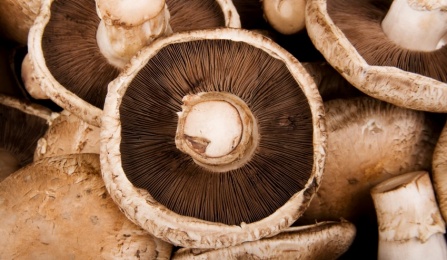Effects of Vitamin D-rich Mushrooms

Mushrooms rich in vitamin D will be studied to help shed light on their effects on people with diabetes, the usefulness of a vegetarian vitamin D source, and how they may improve the quality of life for older adults.
Principal Investigator: Peter J. Horvath, PhD
Co-investigator: Harold Burton, PhD
Funding Agency: Mushroom Council
Period: 10/2011-3/2014
Abstract: There are four specific aims to this study on mushrooms with high vitamin D levels. First, consumption of these mushrooms should reverse vitamin D deficiency. Second, elevation of vitamin D status should increase functional performance and quality of life. Third, glucose tolerance should be improved by elevation of vitamin D status. Finally, oxidative stress from meals and life in general should be reduced with the antioxidants in these mushrooms. This is a two-year study using older participants with a slight D deficiency. They will be consuming Agaricus bisporus (Portabella) mushrooms that are either a non-UVB treated (low D) or UVB-treated (high D) during winter months in Buffalo, NY (at high latitudes). Before, during and after the 12-week supplementation, they will undergo testing for functional performance, glucose tolerance, and quality of life. The results of this study may shed light on the effects of mushrooms for people with diabetes, the usefulness of a vegetarian vitamin D source, and how the use of mushrooms may improve the quality of life for older adults including functional performance. This collection of studies with an at-risk group should increase public awareness about the benefits of mushroom consumption, especially with individuals who avoid sunlight, live at high latitudes or have low skin production of vitamin D3.



